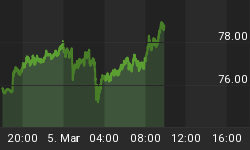As 2010 begins, we start the new year with perhaps more optimism than usual. However, our optimism is not based upon the sanguine view that the markets are now going to be completely in recovery mode. Nor is it based upon the wishful, but often disappointing, supposition that your rewards when investing will always justify your efforts, especially over relatively short time periods. Instead, our optimism springs from the increasing amount of evidence that our unique investment strategies we have evolved over approximately 25 years (and especially those formulated over the last 10 years plus I have been publishing my Newsletter) can consistently help investors do better than the overall market.
In light of the stock market's comeback, you, like apparently many others, may be considering increasing your allocation to stocks, perhaps even drastically so. We especially recommend that if you plan to increase your stock allocations from your current levels, you consider buying mainly on weakness. After the big gains since March, it might not be the wisest move to add large new investments immediately. Although stocks could continue without much of a correction, and therefore, eventually "force" you to make your desired purchases at even higher levels, our instinct suggests that you should wait to see if you can make any new purchases until there has been a drop of at least 5-6% from the recent highs. And if you are a relatively conservative investor, perhaps you should consider waiting until at least a 9-10% correction.
In fact, I have heard from several readers who indicate that they are going to move from being totally out of stocks back into an allocation similar to that I am now recommending. At first, it would seem as though these individuals would be merely "catching up," i.e. putting themselves on an equal footing to someone (such as myself) who has held on to his positive stock allocation as well as many of his funds over a number of years. After all, a 50%+ allocation to stocks might seem to be the same for someone who bought his/her position a week ago vs. someone who has held their position for quite a while.
But there is a hidden danger for the person who bought recently vs. the longer-term holder. Here it is: If you are just now buying into a fund, such as, for example, the Vanguard 500 Index (VFINX), your cost basis will be about the same as the current price. However, if you have generally followed my Model Stock Portfolios for many years, your cost basis may be considerably less. Thus, VFINX currently sells for about 103 per share. However, over the last 15 yrs. the price has been below 100 about 1/2 of the time. If you were fortunate enough to have accumulated much of your position during the times the price was lower, you would currently be sitting on some profits.
In the event that the market does another dive, having a lower cost basis will afford you some protection: As long as the lower-basis investors are not yet losing money, just getting some of their profits trimmed, they will likely be more tolerant of any downdraft. But if you bought more recently, without such protection, you will go underwater fairly quickly. The longer-term investor, then, may have a psychological advantage in being better able to withstand whatever the market throws his way. This is in contrast to the person who has bought fairly recently who may be more likely to sell to avoid further losses.
Our recommendations are usually based on the fund categories and funds we think are likely underpriced relative to other available funds. But if you add a large amount of stocks when the price turns out to have been relatively high, you may be tempted to sell upon the first sign of a serious correction. If you do, you will not only incur a loss, but you will once again be out of the market. An in our experience, we would estimate that somewhere around 95% of people cannot get ahead by being out of the market, only by being in it, despite its at times near horrific downs which are often followed by equally breath-taking ups.
Additionally, aside from waiting for small corrections before buying, you may want to edge into a new stock allocation gradually, rather than all at once. That way you won't be buying your entire position at a time that your fund turns out to have been high-priced. This will protect you more than if you simply establish, say, a 50% position in stocks from a much lower position, or even 0% position, in one fell swoop.
So while 2010 may turn out to be another good year for stocks, it is likely (as nearly always) that any gains won't just be handed to investors on a silver platter. Applying a careful approach after the markets have gone up 60% or more would appear to make even more sense than usual.















